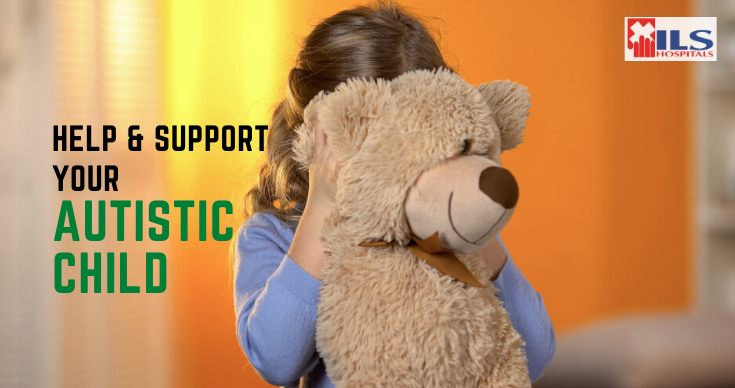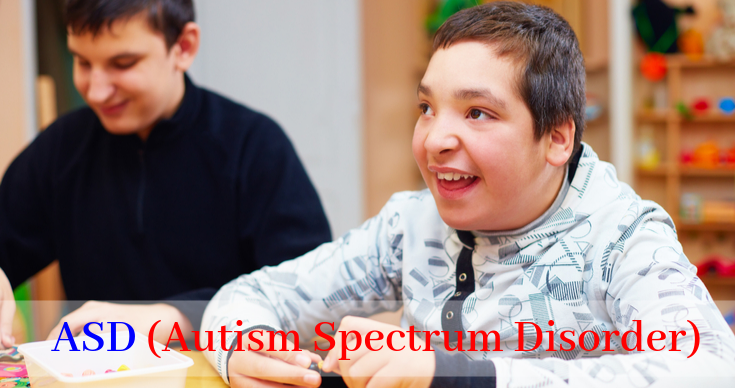How To Help And Support Your Autistic Child
Parenting a child is a tedious and demanding job but parenting a child with autism requires more skills and patience than ever.
ASD (Autism spectrum disorder) is not an easy concept to define. According to various psychiatrists, ASD is a developmental and neurological disorder that hampers the communication and social skills of the children. Autism is chronic and cannot be generally cured. But with multiple therapies, the child can live a normal life.
On World Autism Day, ILS Hospitals, one of the best hospitals in Kolkata and Agartala, will share ways through which you can help and support your autistic child to lead a normal life.
- Educate yourself about Autism: If you do not know what autism is all about, you will never be able to help your child at all. Read books on autism, research on the internet, meet with parents who have an autistic child and consult with a psychiatrist to get a reliable solution.
- Spend time with your child: Your autistic child might show signs of social withdrawal but he or she needs your time more than anything in this world. The needs of an autistic child are the same as other children, it’s just that they do not know how to express themselves.
- Involve your child in social activities: No matter how different and difficult your child is, he or she deserves to play and interact with others. Never hesitate to involve your autistic child in social gatherings and other social events. There’s nothing wrong with your child and he or she should be treated like any other normal child by everyone.
- Always be positive and patient: Sudden outbursts are a common phenomenon with autistic children. Patiently handle their tantrums and be positive about the situation as the child is not aware of the consequences.
- Respect your child’s boundaries: Do not force your child to do something they do not want to do. Respect them like you would respect any individual.
- Do not treat your child differently: If you have more than one child, then do not give the autistic child a different or special treatment than the others. Also, tell your other children to cooperate with their autistic sibling and never exclude him or her from their group.
- Give your love and support: Children seek affection and if they don’t receive them from their families they struggle with their self-esteem and self-expression. Love and support are going to be a soothing balm for your autistic child.
Hospitals in Agartala and Kolkata will always help you and your child in dealing with any medical issues. Do not hesitate to seek medical aid from our team.
10 signs that indicates your child might have autism
In simple words, Autism (Autism Spectrum Disorder) is a neurological spectrum disorder in which the person lacks basic communication (both verbal and non-verbal) skills and social skills. There is no obvious reason behind autism but it is believed by many psychiatrists that ASD in children happens due to heredity, genetic disorders and deformity in the brain structure.
Children show signs of ASD after age 1 or 2 so it’s important for the parents to observe their child’s strange signs. The signs that might indicate that your child is autistic are as follows:
-
Prefers to always stay alone: It’s very odd for a child to prefer being alone than being in the company of other children. Autistic children live in their own world and does not know how to make friends and socially interact with people.
-
Inflexible nature: If your child follows a strict routine even at such a tender age, there is nothing to be proud of because it is a warning sign of ASD. Children with autism religiously follow their fixed schedule and have difficulty while dealing with even the most minor changes in their routine.
-
Repetitive behaviors: Your child may indulge in repetitive behaviors if he or she suffers from autism. The repetitive behaviors include- repeating words or phrases, lining up toys, incessant rocking, staring at lights, twirling, watching moving objects and so on.
-
Does not like physical affection: If your child does not like to be cuddled or even given a pat on the back, or be embraced when upset, it may indicate autism disorder.
-
Disinterested, unaware and unresponsive: A very unusual sign of autism is no eye contact which is seriously worrying for many parents. If your child always seems detached from the world and does not respond to you at all and appears to you deaf, chances are your child has autism.
-
Robot-like personality: Observe whether your child speaks in a flat robot-like tone with no emotions, has atypical posture and if walks on tiptoes.
-
Obsessive behavior: If your child has an obsession and special interest for certain topics and always craves for precise factual information, it can be a sign of ASD. OCD (Over- Compulsive disorder) and Autism go hand in hand so do watch for such signals and talk to a child psychiatrist.
-
Highly unemotional:Autistic children do not show even the basic human emotion in their speech, facial expressions and do not understand anyone’s feelings nor can relate to them. They may look aloof and cold to the entire world but the simple fact remains that they are poor at expressing themselves.
-
Self-harming behavior: Notice if your child practice self-injurious behavior like headbanging, self-scratching, hair pulling and face or head-slapping. Self-harm behavior is harmful and requires medical attention so consult a paediatric psychiatrist if your child physically harms him/herself.
-
Meltdowns: If your child has frequent meltdowns, it can make your life troublesome. There is a difference between normal tantrums and autistic meltdowns, so do not confuse the two and seek professional help, if needed.
Thus, if you notice the above-mentioned signs in your child, consider consulting a child psychiatrist without any delay. We, at ILS Hospitals, have trained and compassionate psychiatrists who will provide your child with the supportive care and counseling needed to better his or her life.












